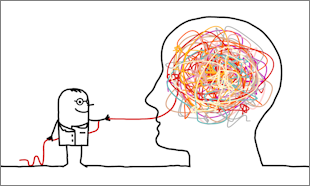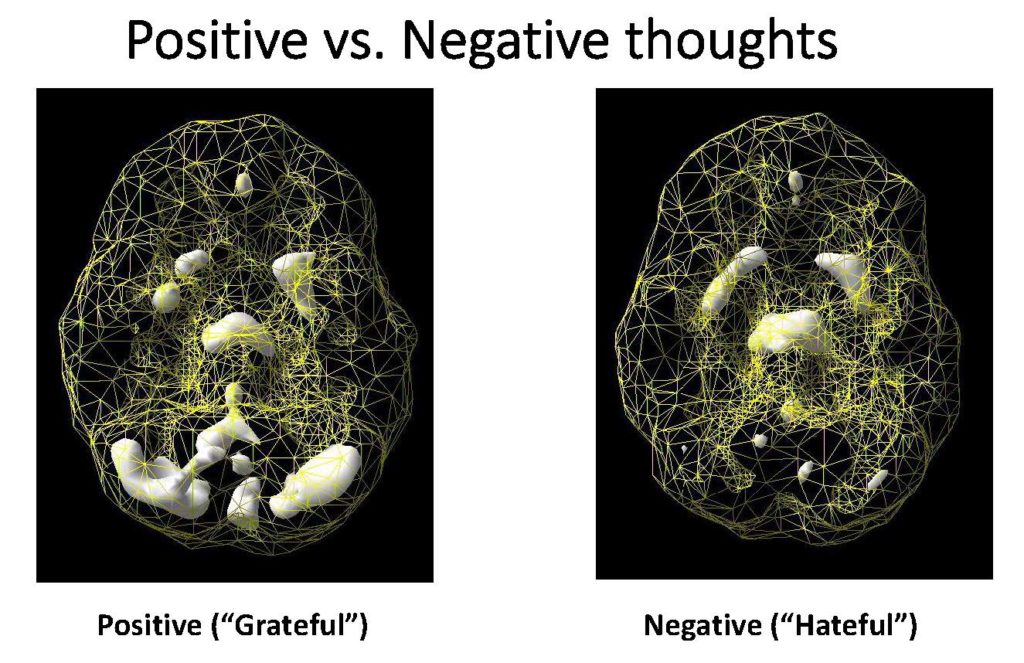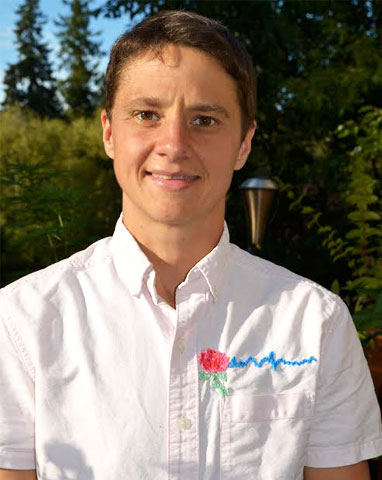
Neurocounseling is a new theoretical framework for counseling, much like psychoanalysis, person-centered therapy, cognitive behavioral therapy, etc. The premise of neurocounseling is that it uses neuroscience as the foundation for case conceptualization and therapeutic interventions. Neurofeedback is often used as an intervention for neurocounseling, but so are other brain-focused activities such as cognitive training using brain training “games”, movement and balance training to strengthen the cerebellum, etc. Neurocounseling uses a holistic approach to target brain function since the brain is affected by everything that we do, eat, breathe, etc., and even things that we do not do.
Talk therapy is just one intervention that neurocounseling uses to treat mental health and other brain-related conditions. In talk therapy, we use a lot of cognitive behavioral therapy techniques since changing the way we think and behave can change our brain. In fact, the two images below show the difference in blood perfusion in the brain (i.e., brain activity) between when the subject is thinking positive, grateful thoughts and when that same subject is thinking negative, “hateful” thoughts:
 Active SPECT Image from Amen Clinics: These images show the lowest 10% of blood perfusion (white) in the brain (yellow scaffolding shows brain structure), which shows the most active areas of the brain. Typically, the cerebellum (at the bottom of the image) is the most active region of the brain in “active” SPECT images. During “grateful” or positive thoughts, the subject shows typically high activity in the cerebellum as well as some typical activities in the thalami and basal ganglia. During “hateful” or negative thoughts, the activity in the cerebellum decreases dramatically and the activities in the thalami and basal ganglia increase, suggesting more negative affect and less cognitive functioning.
Active SPECT Image from Amen Clinics: These images show the lowest 10% of blood perfusion (white) in the brain (yellow scaffolding shows brain structure), which shows the most active areas of the brain. Typically, the cerebellum (at the bottom of the image) is the most active region of the brain in “active” SPECT images. During “grateful” or positive thoughts, the subject shows typically high activity in the cerebellum as well as some typical activities in the thalami and basal ganglia. During “hateful” or negative thoughts, the activity in the cerebellum decreases dramatically and the activities in the thalami and basal ganglia increase, suggesting more negative affect and less cognitive functioning.
Diet and exercise are fundamental to our mental health. Diet also encompasses the effects of the gut microbiome on mental health. The brain is affected by everything we put in the body, so we also consider medications and supplements, although we do not prescribe. With your permission (and legal release of information), however, we can consult with your prescribing physician if you think you may benefit from adding medication to your treatment plan. Exercise is well-known for its positive effects on brain function, but different forms of exercise have slightly different effects, which we can explore.
Social and Spiritual aspects of our lives are how we connect to what is bigger than ourselves. Social interactions are clearly important for brain function as that is a major avenue for how we learn, but it is also where we go for love, nurturance, and emotional (and sometimes physical) support. Spirituality, as it pertains to one’s beliefs, is a profoundly personal endeavor, but spirituality, as it pertains to community and being part of something larger than oneself, is essential for human growth and self-love. In neurocounseling, we can help you to enrich your social and spiritual lives such that you feel whole, happy, and well-supported.

